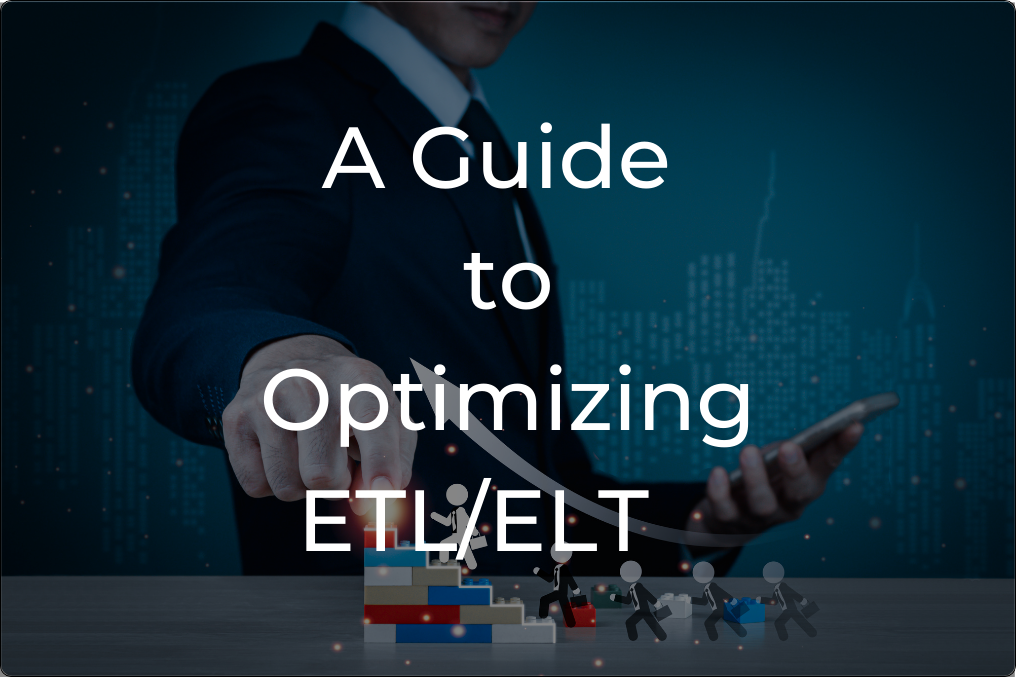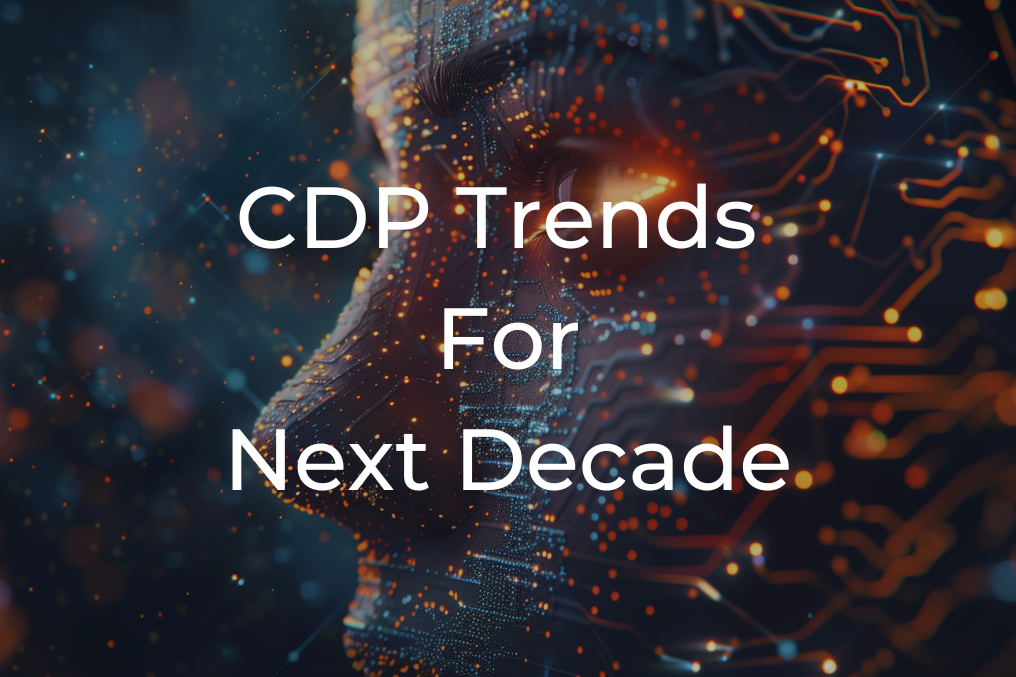
“We’ll help you boost performance, simplify processes, and drive growth with data solutions.”
Why Martech Matters in Today's Marketing Landscape: Unveiling Key Trends
In today’s hyper-competitive marketing environment, businesses need more than just creativity to succeed—they need the right technology. Martech is the engine that powers modern marketing strategies, offering a suite of tools that help companies automate, optimize, and measure their marketing efforts. As the digital world continues to evolve, martech has become an indispensable asset for businesses aiming to scale, compete, and thrive.
Table of Contents
Toggle
Martech isn’t just a buzzword anymore; it’s a vital investment for companies wanting to remain relevant. According to Statista, the global martech industry was valued at $344.8 billion in 2021 and continues to grow exponentially. In 2024, businesses that fail to adopt martech tools risk falling behind competitors who use technology to drive efficiency and personalized customer experiences.
In this blog, we’ll dive deep into the importance of martech, explore major trends and tools, provide insights into how to optimize your martech stack, and look into the future of martech to help you stay ahead.
What is martech?
Martech, short for Marketing Technology, refers to the suite of software and tools that marketers use to plan, execute, and measure their marketing campaigns and strategies. It’s the fusion of marketing and technology, designed to streamline processes, enhance efficiency, and deliver more personalized customer experiences.
Importance of Martech in Modern Marketing
In today’s digital-first economy, Martech has become a crucial component of any robust marketing strategy. Here’s why integrating Martech is vital:
1. Enhanced Marketing Efficiency
Martech automates repetitive tasks, allowing marketers to focus their creativity and expertise on strategic initiatives. Tools such as HubSpot, Mailchimp, and Hootsuite streamline processes like email automation, social media management, and customer segmentation, dramatically improving productivity and efficiency. A recent study by Gartner revealed that companies employing Martech tools experience a 30% reduction in time spent on manual marketing tasks.
2. Data-Driven Decision Making
Data is the backbone of effective marketing. Martech tools like Google Analytics, Tableau, and Marketo provide marketers with critical insights into customer behavior, campaign performance, and market trends. These insights enable informed decision-making, optimizing strategies to enhance effectiveness and ROI. According to Forrester Research, data-driven marketing leaders are three times more likely to achieve measurable improvements in marketing ROI.
3. Personalized Customer Experiences
In a world where personalization reigns supreme, Martech empowers brands to deliver tailor-made experiences for their audience. Utilizing tools like Salesforce Customer 360 and Adobe Experience Cloud, marketers can create personalized content, offers, and interactions that resonate with individual customers, boosting engagement and loyalty.
A report by Epsilon indicates that 80% of consumers are more likely to purchase from brands that offer personalized experiences.
4. Real-Time Engagement
Martech enables real-time engagement with consumers across channels. By leveraging chatbots, push notifications, and automated emails, businesses can maintain continuous and timely communication with their audience, leading to enhanced customer satisfaction and higher conversion rates.
Table 1: Benefits of Martech Integration
Martech Benefits | Impact |
Enhanced Marketing Efficiency | Reduces time on manual tasks by 30% |
Data-Driven Decision Making | Increases marketing ROI by 3x through informed strategies |
Personalized Customer Experiences | 80% of consumers favor brands offering personalized interactions |
Real-Time Engagement | Boosts customer satisfaction and conversion rates through timely communication |
Major trends in Martech
Let’s dive into the major currents shaping the Martech ocean!
1. AI-Powered Everything:
- Predictive Analytics:AI is forecasting customer behavior, allowing marketers to anticipate needs and personalize interactions. Imagine suggesting products before a customer even knows they want them! 67% of marketers say AI is critical for personalizing customer experiences. (Source: Salesforce State of Marketing Report, 2024)
- Automated Content Creation: AI tools like Jasper and Copy.ai are generating everything from ad copy to blog posts, freeing up human marketers for strategic tasks. 70% of B2B marketers are using AI content tools, with 45% reporting increased ROI. (Source: Content Marketing Institute, 2024)
2. The Rise of the No-Code/Low-Code Movement:
- Easy Automation: Tools like Zapier and IFTTT allow marketers to connect different apps and automate tasks without coding. Think automatically adding leads from a Facebook ad to your email list! Over 80% of businesses have adopted no-code or low-code platforms to streamline workflow. (Source: Forrester, 2024)
- Citizen Developers: Empowering non-technical marketers to build their own marketing tools and processes. Gartner predicts that by 2025, 70% of new applications created by enterprises will leverage low-code or no-code technologies.
3. Customer Data Platforms (CDPs) Reign Supreme:
- Unified Customer View: CDPs aggregate data from multiple sources to create a single, 360-degree view of each customer. 97% of marketers believe that a single customer view is critical to their marketing success. (Source: Twilio Segment, 2024)
- Personalized Campaigns:This unified view enables hyper-personalized campaigns across all channels. Imagine sending targeted emails based on website browsing history and past purchases.
4. Omnichannel Experiences are Expected:
- Seamless Journeys: Customers expect consistent brand experiences across websites, social media, email, and offline touchpoints. Companies with robust omnichannel customer engagement retain an average of 89% of their customers, while those with weak omnichannel engagement retain only 33%. (Source: Aberdeen Group)
5. Focus on Privacy and Data Security:
- Transparency and Trust: With increasing data collection, consumers are demanding transparency and control over their data. Think GDPR and CCPA compliance. Over 75% of consumers are concerned about how brands use their data. (Source: Pew Research Center)
- Cookieless Future: Marketers are adapting to a world without third-party cookies, exploring alternative targeting and measurement methods.
6. Conversational Marketing Takes Center Stage:
- Real-Time Engagement: Chatbots and live chat tools on websites provide instant support and build relationships. 69% of consumers prefer chatbots for quick communication with brands. (Source: Salesforce)
7. The Metaverse and Web3 Marketing:
- Immersive Experiences: Brands are creating interactive experiences in virtual worlds, offering new ways to connect with consumers.
- NFTs and Blockchain: NFTs are enabling unique digital ownership and community building.
Table 2: Current Trends in martech
Trend | Description | Example |
AI-Powered Marketing | AI automates tasks, personalizes content, and predicts behavior. | Predictive lead scoring, AI-generated emails |
No-Code/Low-Code Platforms | Empower non-coders to build marketing automations. | Zapier, IFTTT |
Customer Data Platforms (CDPs) | Centralize and analyze customer data for a 360-degree view. | Segment, Tealium |
Omnichannel Marketing | Consistent brand experience across all channels. | Integrated email, social, and in-app messaging |
Privacy and Data Security | Transparency and control over customer data. | GDPR compliance |
Conversational Marketing | Real-time engagement through chatbots and live chat. | Website chatbots, in-app messaging |
Metaverse and Web3 Marketing | Immersive brand experiences in virtual worlds. | Virtual product launches, NFT communities |
10 Best Martech Tools to Elevate Your Marketing Strategy
In today’s data-driven marketing landscape, having the right Martech tools can make all the difference in your ability to compete, grow, and scale efficiently. With the rise of AI, automation, and analytics, Martech tools offer businesses the capabilities to understand their customers better, personalize interactions, and optimize marketing efforts in real-time.
We will explore 10 of the best Martech tools, providing detailed insights into their features and how they can enhance your marketing strategy.

1. HubSpot – All-in-One CRM and Marketing Platform
HubSpot is a comprehensive inbound marketing, sales, and CRM tool that brings together all the essential components of marketing in one platform. It enables businesses to attract visitors, convert leads, close deals, and delight customers through a single platform.
Key Features:
CRM Integration: Tracks every customer interaction from emails to website visits, giving sales teams a 360-degree view of prospects and customers.
- Marketing Automation: Automates lead nurturing, email workflows, and social media campaigns.
- Content Management System (CMS): Enables easy content creation with SEO recommendations, drag-and-drop page editors, and blog management tools.
- Analytics Dashboard: Detailed reporting on traffic, conversion rates, and campaign performance for data-driven decision-making.
Use Case: HubSpot is perfect for small to mid-sized businesses looking for an integrated solution to handle everything from lead generation to sales conversion and customer service.
2. Salesforce Marketing Cloud – Advanced CRM and Marketing Automation
Salesforce Marketing Cloud is a powerful tool that offers more than just customer relationship management (CRM). It helps businesses manage personalized customer journeys, from email marketing to customer support, and allows for real-time engagement.
Key Features:
- Personalized Marketing: Use AI to craft personalized experiences across email, mobile, social, and web channels.
- Journey Builder: Create individualized customer journeys with real-time engagement at every step.
- Data Management: Capture first-party data, create unified customer profiles, and make data-driven decisions.
- Social Studio: Manage social media interactions and campaigns all from one dashboard.
Use Case: Salesforce is ideal for enterprises with complex marketing needs, requiring large-scale automation and data integration across various customer touchpoints.
3. Google Analytics – Website and Traffic Analytics
Google Analytics is one of the most well-known tools for tracking and analyzing website traffic. It provides deep insights into user behavior, traffic sources, and conversion rates, allowing businesses to optimize their digital marketing efforts.
Key Features:
- Real-Time Tracking: See live traffic data, monitor visitor behavior, and track conversions as they happen.
- Goal Setting: Define specific goals such as form submissions or product purchases and track them across campaigns.
- Traffic Insights: Understand where your visitors are coming from, whether it’s organic search, paid advertising, or social media.
- Ecommerce Tracking: Measure product performance, revenue, and user journeys through your online store.
Use Case: Google Analytics is a must-have for businesses of all sizes looking to gain insights into their website’s performance and optimize marketing strategies accordingly.
4. Marketo Engage – Lead Management and Account-Based Marketing
Marketo (part of Adobe) is a leading platform for B2B marketing automation, offering advanced lead management and account-based marketing (ABM) tools to nurture leads and guide them through the buyer’s journey.
Key Features:
- Lead Scoring: Prioritize the most valuable leads based on their behavior, engagement, and fit.
- Account-Based Marketing (ABM): Tailor marketing efforts to high-value accounts with personalized content and campaigns.
- Advanced Segmentation: Segment audiences based on demographics, behaviors, and engagement to improve targeting.
- Analytics: Provides insights into the performance of marketing campaigns, including email opens, clicks, and conversions.
Use Case: Marketo is perfect for B2B companies with long sales cycles, needing precise targeting and lead nurturing capabilities.
5. SEMrush – SEO and Competitive Analysis
SEMrush is a comprehensive SEO and content marketing tool that provides marketers with insights into their website’s performance, competitor strategies, and keyword rankings.
Key Features:
- Keyword Research: Discover profitable keywords for your industry and track your rankings.
- Competitor Analysis: Analyze your competitors’ SEO and paid search strategies to identify opportunities.
- Site Audit: Run a health check on your website to uncover SEO issues and areas for improvement.
- Backlink Analysis: Track and analyze backlinks to improve your domain authority.
Use Case: SEMrush is ideal for businesses looking to enhance their SEO strategy, improve content marketing, and outrank competitors in organic search.
6. Mailchimp – Email Marketing and Automation
Mailchimp is a popular email marketing tool that helps businesses create, send, and analyze email campaigns. It also offers marketing automation features, allowing marketers to manage customer journeys with minimal effort.
Key Features:
- Email Campaign Builder: Drag-and-drop email templates for easy campaign creation.
- Automation: Set up automated email sequences for welcome messages, abandoned cart reminders, and more.
- Audience Segmentation: Segment your email lists based on engagement, demographics, and purchase history.
- Analytics: Track email open rates, click-through rates, and conversions to optimize future campaigns.
Use Case: Mailchimp is great for small to medium-sized businesses that want to implement effective email marketing without needing advanced technical skills.
7. Canva – Design Tool for Non-Designers
Canva is a user-friendly graphic design tool that enables marketers to create professional-quality visuals without requiring extensive design experience. It’s perfect for social media posts, infographics, presentations, and more.
Key Features:
- Templates: Choose from thousands of pre-made templates for social media, presentations, and marketing materials.
- Drag-and-Drop Editor: Easily create custom designs with a simple drag-and-drop interface.
- Collaboration Tools: Invite team members to edit and collaborate on designs in real-time.
- Brand Kit: Store and manage brand assets like logos, fonts, and color schemes for easy access.
Use Case: Canva is ideal for businesses that need to create marketing visuals quickly and professionally, even without a dedicated design team.
8. Hotjar – Behavior Analytics and Heatmaps
Hotjar is a behavior analytics tool that provides insights into how users interact with your website through heatmaps, session recordings, and feedback tools.
Key Features:
- Heatmaps: Visualize where users click, scroll, and hover on your website.
- Session Recordings: Watch real-time user sessions to understand their behavior and identify friction points.
- Feedback Polls: Collect on-page feedback to understand what users like or dislike about your website.
- Conversion Funnels: Identify drop-offs in your conversion funnel and optimize for better results.
Use Case: Hotjar is perfect for businesses looking to optimize their website’s user experience and boost conversion rates by understanding user behavior.
9. Hootsuite – Social Media Management Tool
Hootsuite is a comprehensive social media management platform that helps businesses manage multiple social media accounts, schedule posts, and analyze social media performance.
Key Features:
- Post Scheduling: Schedule posts across different social platforms like Facebook, Twitter, Instagram, and LinkedIn.
- Social Listening: Monitor brand mentions, track hashtags, and keep an eye on competitors.
- Analytics: Measure post engagement, follower growth, and campaign success across social media channels.
- Team Collaboration: Collaborate with your team to plan, create, and approve social media posts.
Use Case: Hootsuite is ideal for businesses that manage multiple social media accounts and want to streamline their efforts and analyze the performance of their campaigns.
10. Ahrefs – Comprehensive SEO Tool
Ahrefs is another leading SEO tool that helps marketers with keyword research, backlink analysis, and competitive research. It provides detailed insights into organic search performance and helps businesses improve their SEO rankings.
Key Features:
- Keyword Explorer: Discover keyword opportunities with high search volume and low competition.
- Site Explorer: Analyze your competitor’s backlinks, top pages, and keyword rankings.
- Content Gap: Identify missing content opportunities to outrank your competitors.
- Rank Tracking: Monitor your website’s rankings over time and see improvements in your SEO efforts.
Use Case: Ahrefs is ideal for businesses that rely heavily on organic search and want a data-driven approach to SEO optimization.
How to Optimize Your Martech Stack for Maximum Impact?
Building an effective Martech stack involves strategic planning and continuous optimization. Here’s how to maximize its potential:
1. Align Martech with Your Goals
Understand your marketing objectives and select tools that directly support these goals. Whether increasing brand awareness or driving customer acquisition, choose solutions that complement your strategy.
2. Integrate Seamlessly
Ensure that your Martech stack integrates smoothly, allowing for seamless data flow and unified customer insights. This involves choosing tools that work well with existing systems and facilitate easy data sharing across platforms.
3. Continual Evaluation and Adjustment
Regularly assess the performance of your Martech stack. Stay updated on emerging tools and trends and be ready to adapt your stack to meet evolving marketing needs. This flexibility is key to maintaining a competitive edge.
4. Foster a Robust Data Strategy
Implement a strong data strategy to ensure you’re collecting, analyzing, and utilizing data effectively. This involves compliance with data privacy laws, maintaining data accuracy, and leveraging analytics to drive decisions.
The Future of Martech: Navigating a Transformational Landscape

The future of Martech promises even greater innovations, reshaping marketing as we know it. Here’s what to anticipate:
1. The Integration of Martech and Emerging Technologies
Emerging technologies like blockchain, augmented reality (AR), and virtual reality (VR) are poised to revolutionize Martech by enhancing transparency, engagement, and immersive experiences. Such advancements will require marketers to adapt quickly, integrating these technologies into their strategies to captivate tech-savvy audiences.
2. Personalized Marketing at Scale
The future of Martech will continue to push the boundaries of personalization. As data analysis becomes more refined, marketers will have the ability to deliver highly personalized messages to large audiences without sacrificing quality or engagement.
3. Heightened Focus on Privacy and Ethics
As the use of customer data grows, so too does the responsibility to protect it. Future Martech strategies will need to prioritize data privacy, ensuring compliance with regulations while maintaining consumer trust.
4. Greater Automation and AI Integration
Automation and AI will drive future Martech advancements, further streamlining marketing processes, enhancing decision-making, and unlocking innovative opportunities for market engagement.
Table 3: Future Trends in Martech
Future Trend | Expected Impact |
Integration of Emerging Technologies | Enhanced transparency, engagement, and immersive experiences |
Personalized Marketing at Scale | Advanced personalization for large audiences |
Focus on Privacy and Ethics | Prioritized data privacy and compliance |
Greater Automation and AI Integration | Streamlined processes and innovative engagement |
Conclusion: Embrace the Martech Revolution
In conclusion, Martech is reshaping the marketing landscape, offering tools and strategies that are essential for success in today’s digital era. By harnessing the power of Martech, businesses can drive efficiency, foster personalized experiences, and make data-driven decisions that lead to greater ROI and customer loyalty. As the landscape continues to evolve, staying informed about major trends and future advancements will be key to maintaining a competitive edge.
So embrace the Martech revolution and position your brand for growth in an ever-changing marketing world. With the right Martech stack and strategic approach, the possibilities are limitless.
Ranjan Kashyap
“We’ll help you boost performance, simplify processes, and drive growth with data solutions.”


Cloud Data Warehouse Showdown: BigQuery, AWS Redshift, and Azure Synapse

Optimizing ETL/ELT Processes for Enhanced Data Quality: Strategies for Businesses

Unlock 2025 Marketing Potential: The Ultimate Guide to Using GA4 for Smarter Strategies

Future of CDPs: 10 Key Trends for the Next Decade

Ultimate CRO Checklist: Enhancing Your E-commerce Website’s Performance
Explore related posts.

GA4 and Server-Side Tagging: The Next Big Thing in Data Analytics in 2025 🚀

Cloud Data Warehouse Showdown: BigQuery, AWS Redshift, and Azure Synapse

Optimizing ETL/ELT Processes for Enhanced Data Quality: Strategies for Businesses

Unlock 2025 Marketing Potential: The Ultimate Guide to Using GA4 for Smarter Strategies


